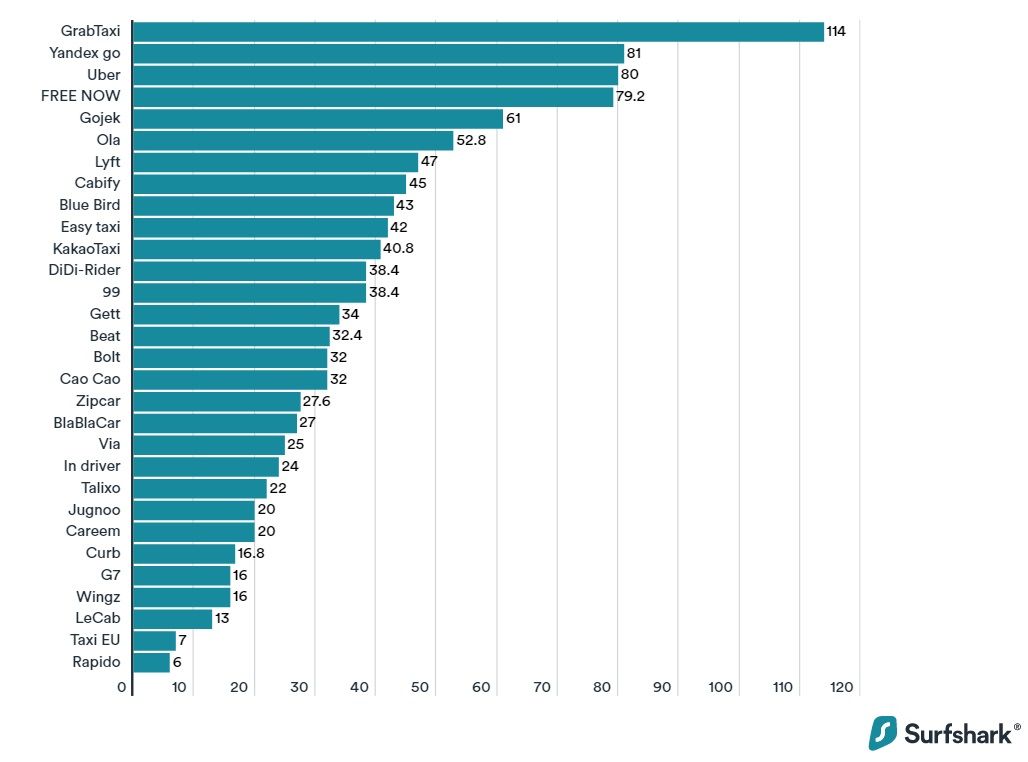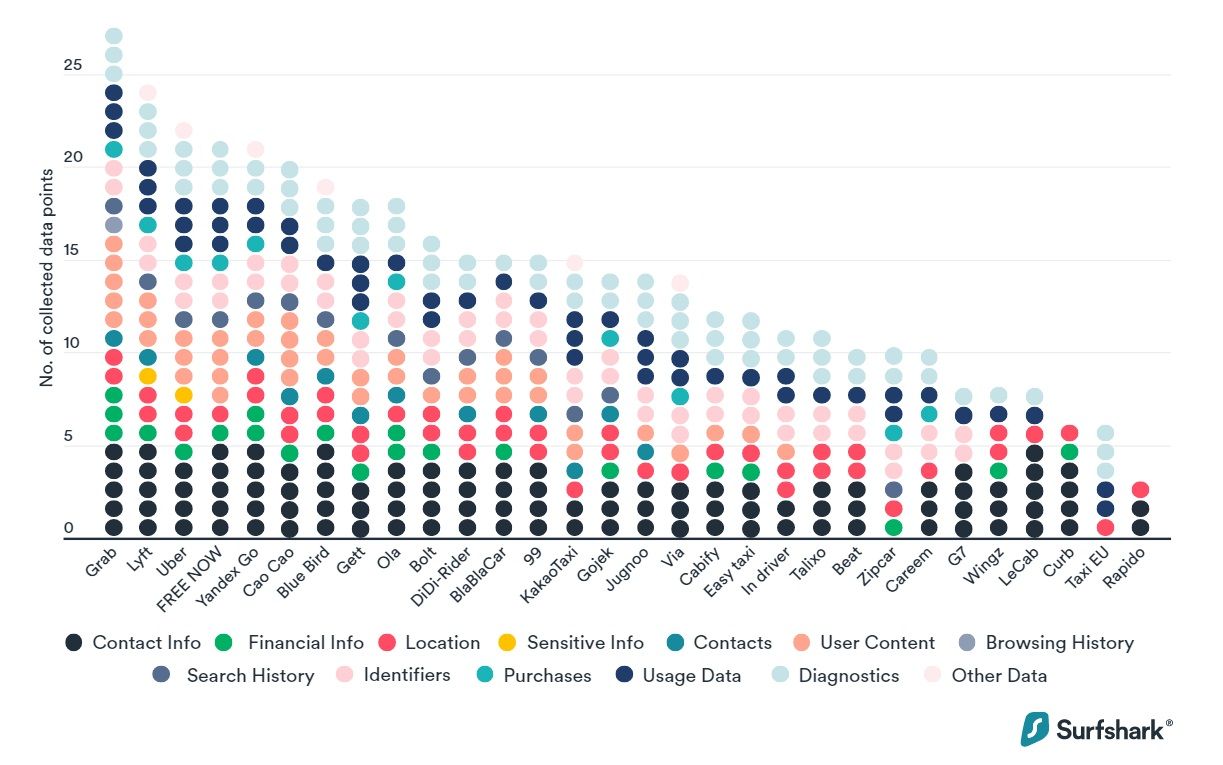Taxis are old news. If you want to get around, you're more than likely to use a ride-hailing app like Uber, Lyft, or Bolt.
But while these apps take you where you want to go, they come with another hidden cost: data. That's right; when you use a ride-hailing app, you're traveling from A to B, but the ride-hailing app is collecting and collating your data in the process.
How much data is collected and how that data is put to use varies between ride-hailing companies, as you might expect. So, which ride-hailing apps collect the most data on you?
Which Ride-Hailing App Collects the Most Personal Data?
Surfshark's recent report found that ride-hailing app GrabTaxi collects the most data, collecting data on 27 of the 32 possible data points. Furthermore, GrabTaxi grabs almost ten times more data than the lowest-ranked app, Rapido.
The study took 30 apps from Apple's App Store and took a good look at their data collection practices. It then took the 32 different types of data measured by the App Store and created a handy data index, ranking each available ride-hailing app according to how much personal data they hoover up.
Each app received:
- One point for data not linked to the user's identity
- Two points for data that could be linked to the user's identity
- Three points for data that could track users across apps and websites
Using Surfshark's data collection metrics, GrabTaxi scored a whopping 114 points. The nearest competitor was Yandex Go with 81 points, followed by the world's most well-known ride-hailing service, Uber, with 80 points.
What Personal Data Do Uber and Lyft Collect?
With 80 points, Uber ranks third in Surfshark's ride-hailing data collection rankings. However, competitor Lyft is further down the list, amassing 47 points. While that may seem like a big difference, it's worth considering that both companies collect similar data on their users.
Both Uber and Lyft collect sensitive user information (sensitive information can include race, ethnicity, sexual orientation, pregnancy, childbirth information, religious, political and philosophical beliefs, trade union membership, genetic information, or biometric data).
In fact, the study found that although Lyft scored fewer points, it actually collected data from a marginally wider range of sources, as per the table below. However, the difference is in how either company uses that data once collected. Uber's higher score suggests a higher percentile of data collection linked to the user's identity and data used to track users across other apps and services.
Which Ride-Hailing Apps Collect the Least User Data?
So, if those are the ride-hailing apps that collect the most data, which ones are the bastions of personal privacy? Okay, so maybe not completely virtuous and eschewing all personal data, but two companies scored below ten: Taxi EU with 7, and Rapido with 6.
Rapido, an Indian ride-hailing service, requires just three pieces of information: the location, user name, and phone number. Similarly, Taxi EU requires the same, although also collects analytics data on performance, usage, and otherwise.
Simply put, there is no need for ride-hailing apps to collect more data than required, as these services show that a lift can be called from A to B without giving your private information away.
Why Do Ride-Hailing Apps Collect Data? Can You Protect Your Data?
There are two primary reasons these companies collect user data: to improve their services and to make additional revenue. Like the vast majority of apps (not just ride-hailing), personal information is easily sold to advertisers, who can buy up bundled data and figure out what it is you might like to see or buy online.
Blocking and protecting your personal data from a ride-hailing app is another thing entirely. Most apps require your personal information to function (age, location, name, number, etc.), and you give over easily accessible information once you jump in the ride and head to your destination.
So, if you want privacy, perhaps a ride-hailing app isn't for you. Maybe next time, take a... taxi?



